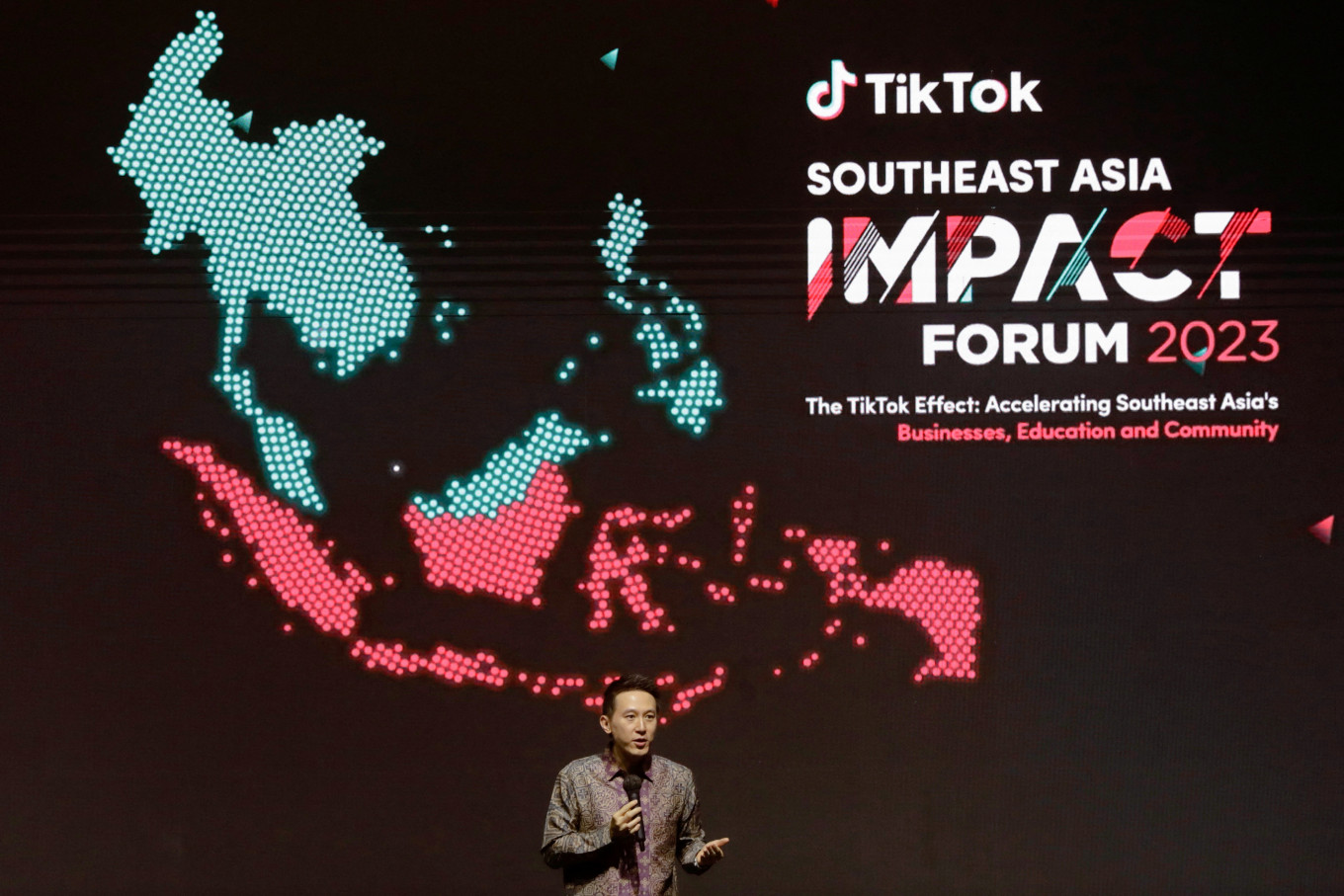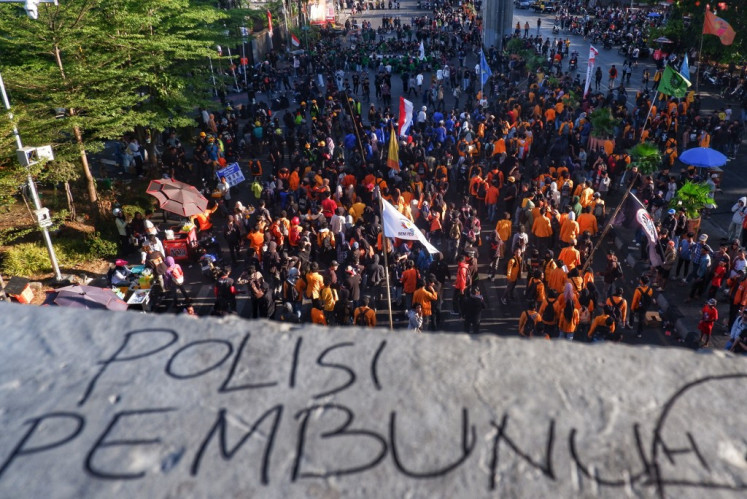Popular Reads
Top Results
Can't find what you're looking for?
View all search resultsPopular Reads
Top Results
Can't find what you're looking for?
View all search resultsTikTok CEO vows to keep political ads off platform
During an event in Jakarta, the CEO of the highly popular short video platform has vowed to uphold freedom of expression by refraining from accepting political advertisements.
Change text size
Gift Premium Articles
to Anyone
T
ikTok CEO Shou Zi Chew has promised that the popular video platform will uphold freedom of expression with “serious integrity” by refusing political advertisements, a hard-earned lesson through the company's experience of elections in numerous countries.
“We do not want to […] profit from the election cycle. As a matter of global policy, we do not take any political advertisement dollars,” Chew said on Thursday at The Ritz-Carlton Pacific Place in Jakarta, during a press conference to mark the launch of the TikTok Socio-Economic Impact Report 2023.
Acknowledging that social media platforms had become popular forums for expressing and discussing political ideas, Chew vowed that TikTok would be proactive and dedicated to preserving its integrity as a platform for expression by providing an “election hub”.
Speaking at the same event, Coordinating Maritime Affairs and Investment Minister Luhut Pandjaitan said he welcomed TikTok’s investment and business in Indonesia while delivering a firm message: "Make good business in return, but do not enter politics, please!"
Read also: House pushes govt to form data protection agency
According to Chew, TikTok’s “election hub” aims at “identifying and removing hate speech and harmful misinformation while at the same time, preserving the freedom of expression”.
Teresa Tan, head of global public policy at TikTok Southeast Asia, elaborated that the company would collaborate closely with election authorities to ensure its election hub was accessible to users and provided targeted information, especially during the critical phase of the election cycle.
TikTok also said it had increased its engagement with resources worldwide to assist in verifying information and content on the platform.
“This requires us to work very closely with the firms as far as understanding the local social context, local social norms, to be able to act on the nuances of the contents that may come in,” Tan told reporters on Thursday.
Users are constantly exposed to content tailored to their personal preferences and biases through as digital algorithms track their social media consumption. In the political sphere, social media platforms have emerged as prominent spaces for dialogue and discussion, as well as tools to advance partisan agendas and to express political ideas.
Some have demanded that politics be kept off social media platforms, but IT consultant Alfons Tanujaya says such calls for “no politics” are unrealistic.
Social media could not be “100 percent sterile from the interests of its users, especially those who intend to exploit”, Alfons told The Jakarta Post on Thursday.
“Not only in Indonesia, where regulations are not as strict, but even in America, where regulations are quite strict, social media is used as a means to convey political interests,” he added.
Cyber analyst Ardi Sutedja concurred: "It seems that because platforms live off 'followers', it is difficult to enforce such a policy."
Ardi told the Post that he nonetheless appreciated TikTok’s efforts to prevent its use for political purposes, calling the company’s stance "positive and commendable".
“Content should be monitored regularly and cleaned of damaging content, including pornography, crime or political interests that have the potential to divide and cause conflict,” he said, noting that the platform had a community policy to regulate harmful content.
Ardi pointed out, however, that the recent wave of tech layoffs had resulted in reduced numbers of personnel to supervise content.
Read also: TikTok to invest billions of dollars in Southeast Asia to boost e-commerce
TikTok is looking to invest more in Indonesia following moves by some Western governments to crack down on the platform’s use, especially among public officials, with countries including the United Kingdom and New Zealand following the United States in prohibiting the app on government phones.
As the platform’s parent company ByteDance is headquartered in Beijing, these efforts have cited potential security risks of the Chinese government using the service to harvest user data or to advance its interests.
The platform has not met with similar bans in Southeast Asia.
Alfons said it was important for social media platform companies to be transparent about their decisions related to content moderation, though he added that it was difficult to determine the effectiveness of the policy in curbing the spread of misinformation.
Furthermore, “platform operators may be required to share their customer data with other parties, such as governments, and sometimes they are bound by the regulations of their home country”, he added.
On the other hand, “if they share data with third-party services, they are in jeopardy of being abandoned by their users”, he said.










